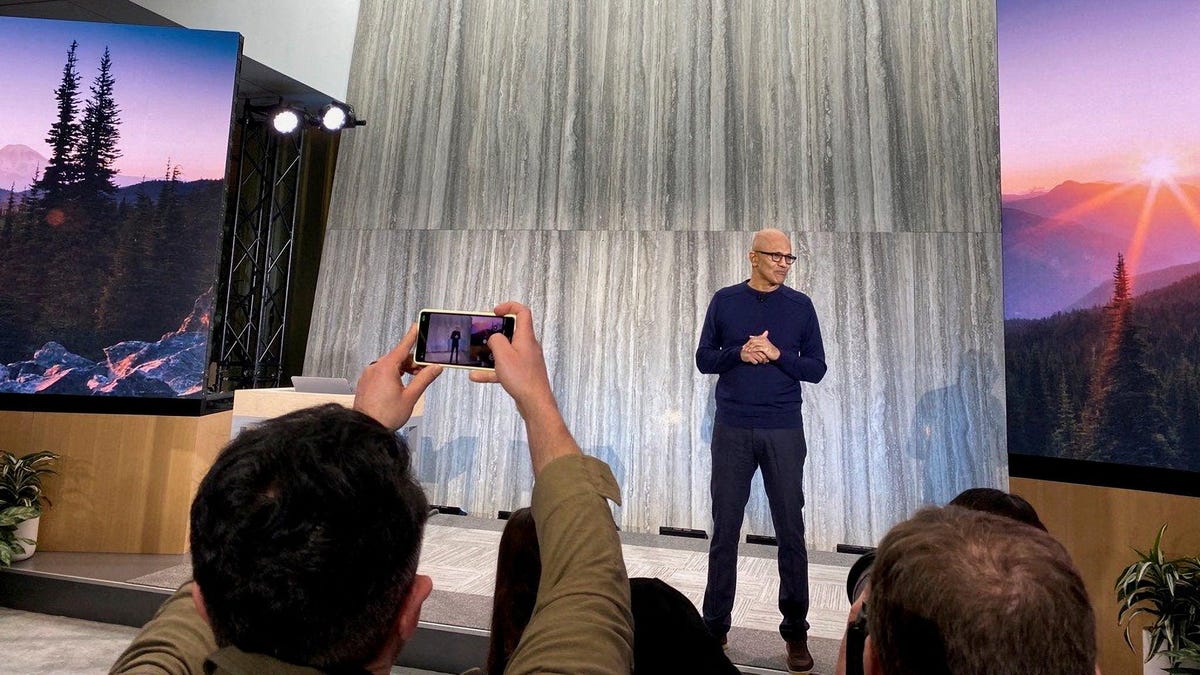[ad_1]

Using AI, Microsoft might finally mount a challenge to Google’s dominance in search.
Earlier this month, Microsoft unveiled the new Bing search engine, which uses artificial intelligence to not just give users links, but also to provide answers to questions. Bing can respond, for example, to a query to create a spreadsheet of a company’s revenue for the past five years or to check if a certain-size futon will fit in a specified vehicle. Since Bing’s update, Google has come out with its own competitor, Bard.
“We’ve been steadily focused on Bing and we’ve been working. We’ve been at it for the last two decades or so,” said Yusuf Mehdi, corporate vice president at Microsoft, over a Microsoft Teams video chat last week.
Part of the reason Bing never gained popularity was that by the time it launched in 2009, Google search, with a decade head start, had already become synonymous with searching the internet.
But Microsoft would continue to work on re-vamping and re-branding Bing. Shortly after Bing rolled out, Microsoft struck a deal for Yahoo to be powered by Bing Search, boosting Bing’s growth in the market. In 2012, Microsoft announced a re-design of the search engine, which included Sidebar, a feature that searches users’ social networks for information relevant to the query.
Microsoft incorporated Bing into other applications and devices such as its personal digital assistant Cortana, helping Bing turn its first quarterly profit of more than $1 billion in 2016. Three years later, Bing rolled out a feature allowing companies to create private, internal search results, positioning itself as a search engine for businesses.
Still, Microsoft’s efforts have not done much to stop Bing from languishing in the global search industry. To date, Bing’s share of the market remains in the single digits, some estimates show. In the US, Bing carries about a quarter of the market.
Microsoft re-imagines search engine with ChatGPT
Every two decades or so, technology makes a big pivot, Mehdi said, pointing to PCs, mobile phones, the cloud. Microsoft is betting that AI is the next opportunity to re-imagine search and the web browser.
In 2019, Microsoft announced a partnership with OpenAI, the AI research company behind the chatbot ChatGPT and the visual illustration generator DALL-E. Both saw an opportunity to combine their AI efforts. Many of Microsoft’s technologies that weren’t designed for search proved helpful in developing the new Bing, Mehdi said, such as an AI supercomputer and the capability to host training data on the Azure cloud service.
In the last year, he said the team started to see how ChatGPT applications could improve both core search and algorithmic ranking, as well as make a search interface more approachable. After ChatGPT launched, Mehdi said they “got even more conviction that this could be great in the context of search,” adding, “We’re going to learn a lot over the next year or two. It’s fun times.”
Not surprisingly, problems abound with the new AI technology, with factual errors and the creepiness factor receiving a lot of splash in the media. “For anything that’s really important, you’ll always want to fact check,” Mehdi said. “You need to make the ultimate decision.” It’s a reminder that human judgment is still required in the age of AI.
Microsoft rolled out Bing to a select cohort of users and aims to begin scaling it to millions of users in a few weeks. The company is using public feedback to improve the product.
If the new Bing is successful, it could reshape Microsoft’s other offerings, such as the company’s support help desks or Outlook email platform. Imagine one person automatically creating a calendar invite with five employees in five different time zones. Just this week, Microsoft launched a new Bing chat experience with Skype.
Rather than a grab for Google’s market share, “it’s more of a showcase for their shared services and and trying to make Microsoft cool again,” said Darin Stewart, a Gartner analyst.
Could Microsoft snatch Google’s dominance in the search?
While Google dwarfs the competition in search traffic, Microsoft’s Mehdi said, “We don’t have to necessarily change the entire search game to have success.” The US online advertising market is about $700 billion, and 42% of that is search, he said. Adding one point of search share translates to $2 billion of revenue for Microsoft, according to the company.
Another advantage? Microsoft may have more to lose than Google does with this new bet. In the last quarter of 2022, Microsoft’s revenue from search and news advertising was $3.2 billion, just 6% of total revenue. Meanwhile, 56% of the total revenue for Alphabet, Google’s parent, came from search advertising in the same time period.
But the question remains: Can Microsoft entice people to join Bing en masse? “I hope so. It certainly struck a chord with our launch,” said Mehdi. “And so, you know, it’s a start… and so we have to continue to do more innovation. But yes, I would say for the first time in a long time, we’re really excited about the opportunity to change the game of search for the better for people.”
[ad_2]
Source link
